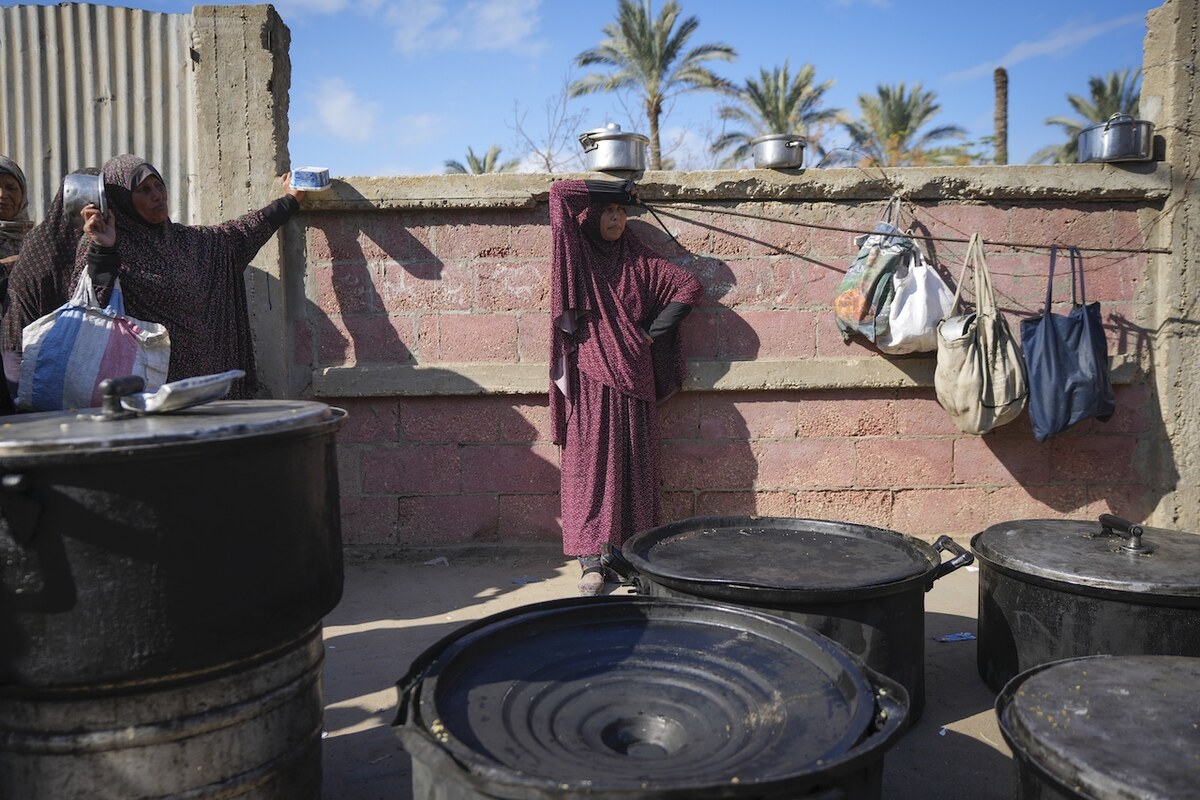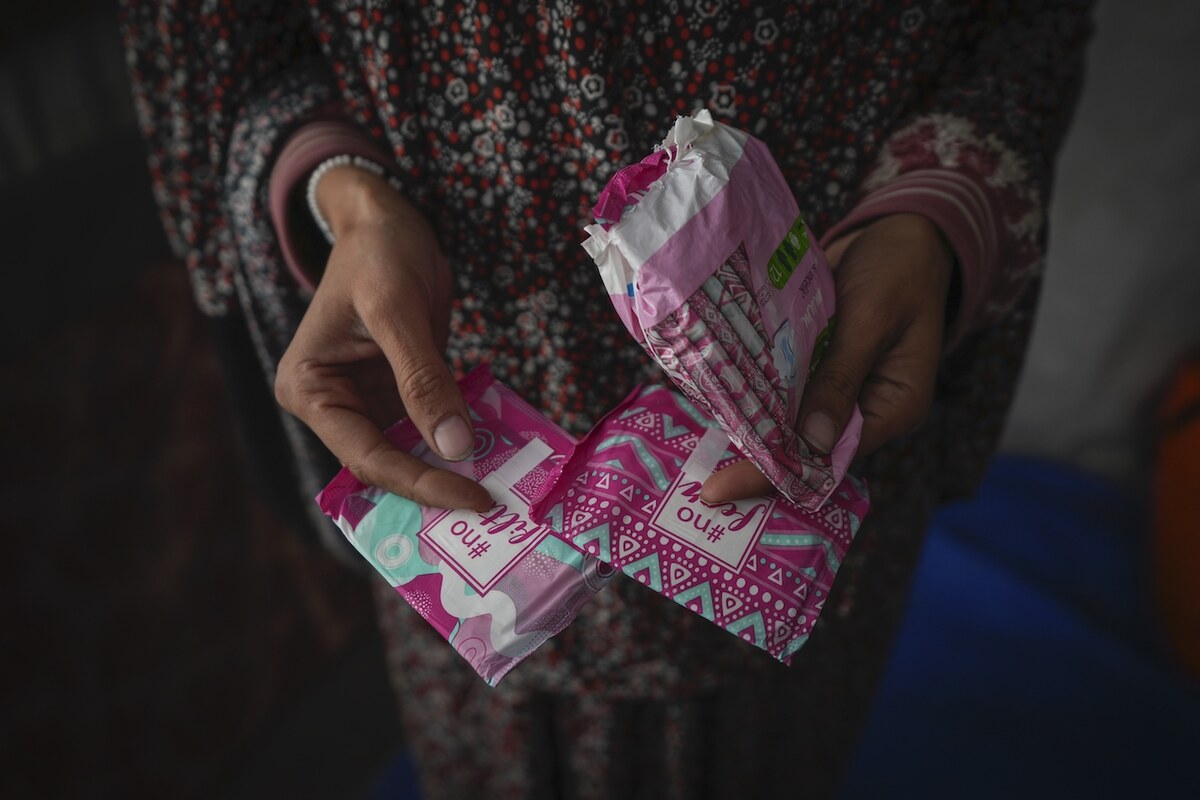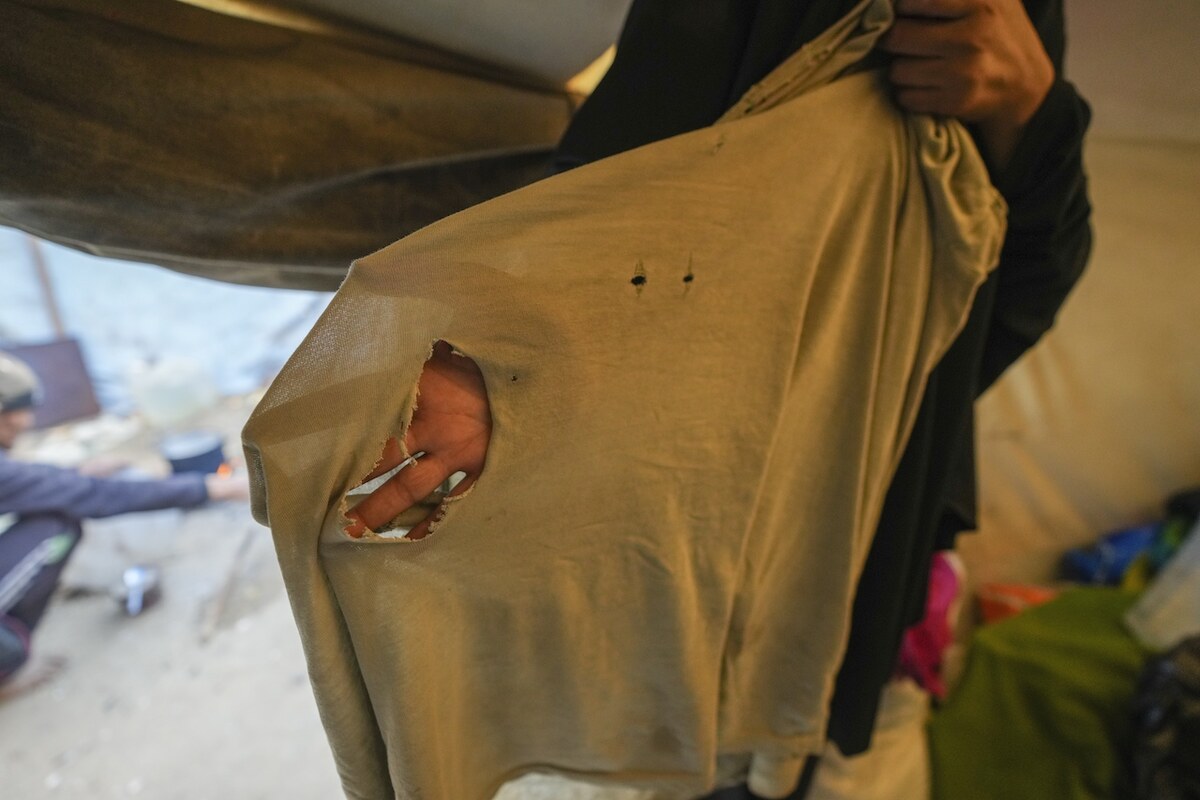GAZA: Israel’s military blew up more than 30 water wells in Gaza this month, a municipality official and residents said, adding to the trauma of airstrikes that have turned much of the Palestinian enclave into a wasteland ravaged by a humanitarian crisis.
Salama Shourab, head of the water networks at Khan Younis municipality, said the wells were destroyed by Israeli forces between July 18-27 in the southern towns of Rafah and Khan Younis.
The Israeli military did not respond to the allegations that its soldiers destroyed the wells.
It is not only ever-present danger from Israeli bombardment or ground fighting that makes life a trial for Gaza’s Palestinian civilians. It is also the daily slog to find bare necessities such as water, to drink or cook or wash with.
People have dug wells in bleak areas near the sea where the bombing has pushed them, or rely on salty tap water from Gaza’s only aquifer, now contaminated with seawater and sewage.
Children walk long distances to line up at makeshift water collection points. Often not strong enough to carry the filled containers, they drag them home on wooden boards.
Gaza City has lost nearly all its water production capacity, with 88 percent of its water wells and 100 percent of its desalination plants damaged or destroyed, Oxfam said in a recent report.
Palestinians were already facing a severe water crisis as well as shortages of food, fuel and medicine before the destruction of the wells, which has deepened the anguish brought on by the Gaza war, now in its 10th month.
ISRAEL SAYS WORKING ON REPAIRS
COGAT, the branch of the Israeli military that manages humanitarian activities, told Reuters it has coordinated water line repairs with international organizations and “dozens” were done in the last month including one to the northern Gaza Strip.
Other work including power repairs at a desalination plant and construction of additional lines was under way.
Hamas and other militants “have been known to attack civilian infrastructures and humanitarian aid routes, adding to the complexity and danger of delivering much-needed humanitarian aid to the region,” COGAT said.
All Gazans can do is wait in long lines to collect water since US, Qatari and Egyptian mediators have failed to secure a ceasefire from Israel and its arch-foe Hamas. Not only is there a shortage of water, much of it is also contaminated.
“We stand in the sun, my eye hurts because of the sun, because we stand for long (hours) to (secure) water,” said Youssef El-Shenawy, a Gaza resident.
“This is our struggle with non-potable water, and then there is our struggle with drinking water, which we take another queue for, that’s if it is available.”
The war started on Oct. 7 when Hamas, the Palestinian militant group ruling Gaza, killed 1,200 people in Israel, according to Israeli tallies, and took another 250 or so to hold as hostages in Gaza, one of the most crowded places on earth.
Israel’s retaliatory offensive has killed more than 39,000 people and bombed much of Gaza, where functioning hospitals are scarce, into rubble, Gaza health authorities say.
Fayez Abu Toh observed fellow Gazans standing in line in the heat eager to get their hands on water. Like many Palestinians he wonders why Israel strikes targets that pose no threat to its military.
“Whoever has a bit of a sense of humanity has to look at these people, care for them and try to (impose) a ceasefire and end this war. We are fed up; we are all dead and tired. The people have nothing left,” he said.
“Does this well affect the strength of the (Israeli) Defense Force? This is a destruction of the infrastructure of the Palestinian people to further worsen the situation, and to pressure these people that have no one, but God.”
































